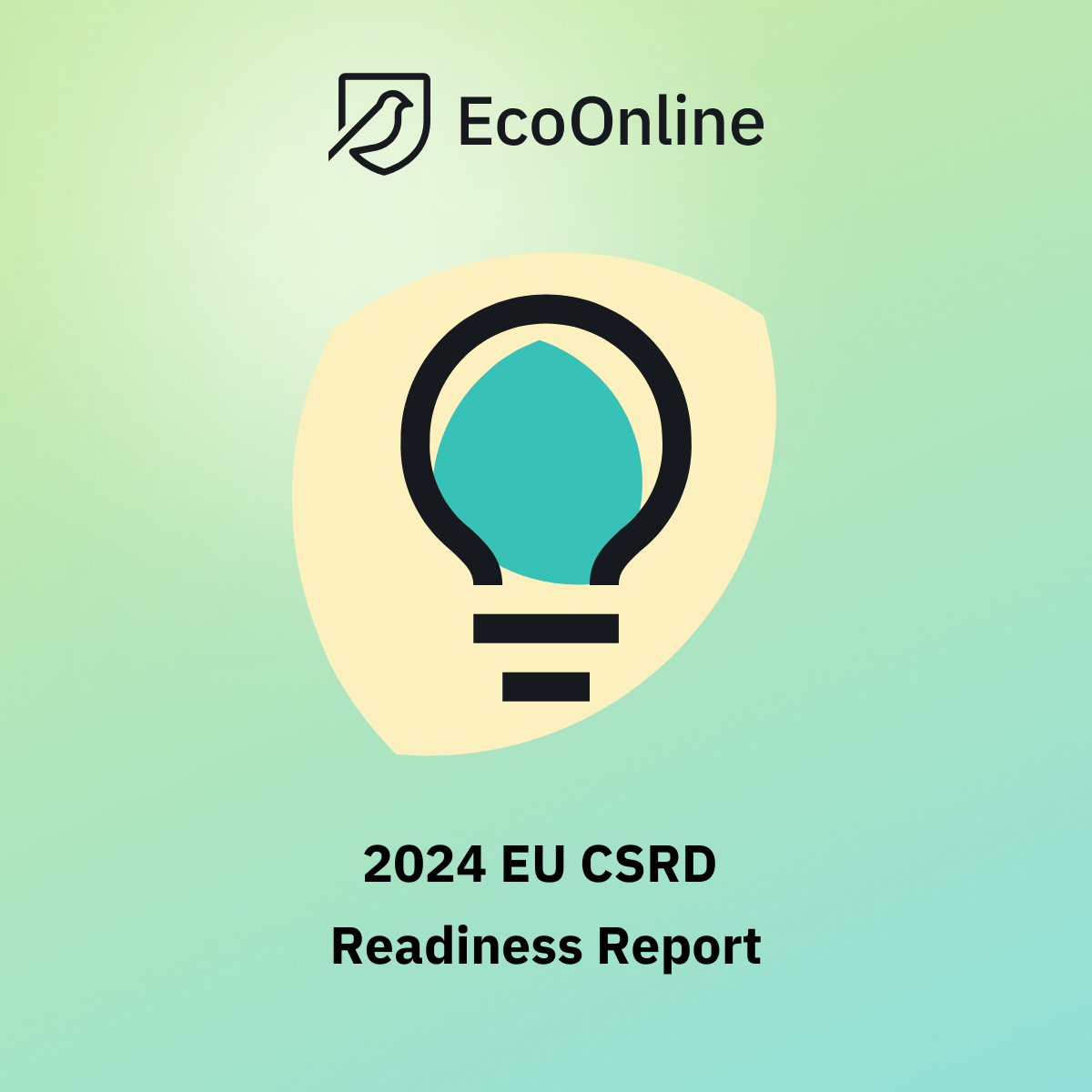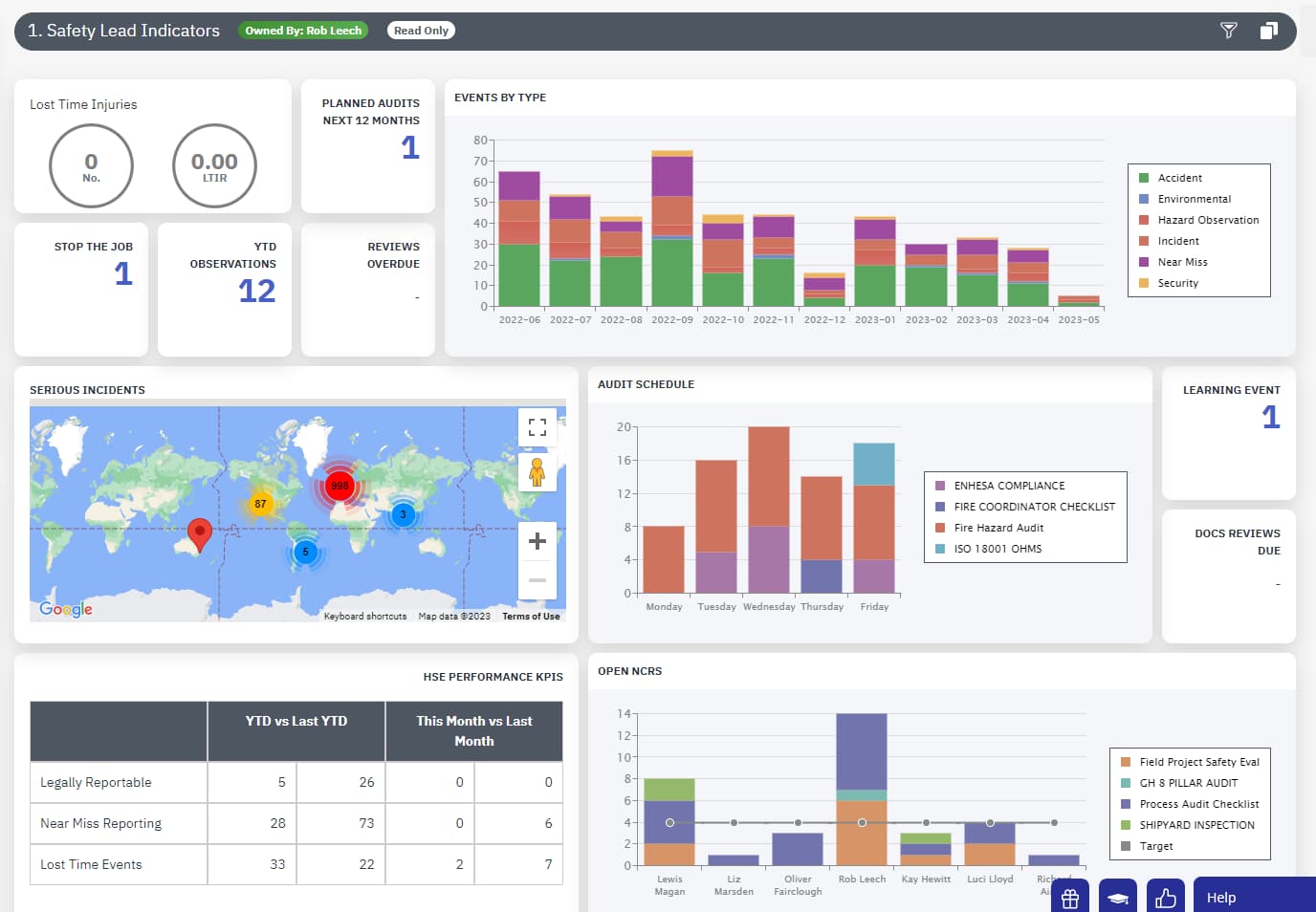How to prepare for California’s new sustainability disclosure climate laws

Even if your organization is headquartered outside California, the new California’s new sustainability disclosure climate laws will likely still impact how you report on carbon emissions and climate-related risk.
The new disclosure standards impact organizations with more the $500 million in annual revenue that do business within the State of California. Since California set to become fourth biggest economy in the world, these new disclosure standards will quickly become a central part of the global regulatory landscape when they go into effect.

With climate laws fast approaching, are you prepared?
In June 2024, EcoOnline surveyed companies with annual revenues of over $500 million to see how prepared they are for the new California laws. The survey looked at what steps these companies are taking to comply and explored their current and future plans for meeting climate change goals.
One insight that stood out:

As California sets the precedent in the U.S. for emissions and climate-related risk reporting, business leaders are already building sustainable programs, recognizing their importance in attracting the next generation of consumers, even in the absence of regulations being enforced. As one respondent summed it up, “In a competitive market, sustainability sets a brand apart, appealing to consumers who value good practices.”
How to prepare for compliance with new sustainability regulations
As sustainability leaders prepare their companies for this new normal around emissions and climate-related risk reporting, here are three steps you can take to put your organization in the best possible position going forward.
1. Assess your current ESG data to look for gaps or inconsistencies
According to the survey, 100% of respondents plan to advance their sustainability efforts even without regulatory pressure. But most are still in the early stages today — with just 6% already reporting on climate and sustainability performance.
To build momentum, start by auditing the sustainability data you currently collect. This will help you understand what data you already have, identify key gaps—like missing Scope 3 emissions data, for example—and spot inconsistencies in your reporting practices. With these insights, you can create a more well-developed, holistic roadmap for sustainability reporting.
2. Start implementing the right processes for data collection and ESG disclosure
85% of survey respondents indicated that they are taking at least some action toward meeting the impending California regulations. However, 41% of respondents say they have a team dedicated to building the needed internal competencies.
While officials expect the new laws to be delayed to give the California Air Resources Board (CARB) more time to determine the rules, it’s crucial to start preparing now.
The path forward will vary for every company, but the urgency to begin putting these processes in place remains high. Leaders should start asking key questions:
- Is my company prepared to collect data using our current tools, or do we need to explore purpose-built solutions to enhance our current processes?
- Can we handle all or parts of this work in-house, or should we bring in a consulting partner for more expertise and guidance?
Answering these fundamental questions will help you identify the path toward implementing the processes that best fit your operations.
3. Leverage a software solution to streamline your reporting
It’s not just process that’s lacking — many organizations don’t have the technology and tools they need to implement the appropriate processes to support their corporate sustainability reporting. Instead, they’re trying to use tools not designed to collect sustainability data — and ending up with gaps and inefficiencies that slow everything down.
For many, using a solution designed specifically for sustainability reporting is often the best option. Modern solutions can offer a clear view of fully auditable, financial-grade data on Scope 1, 2, and 3 emissions that meet regulatory standards and help drive strategic decision-making at the executive and board levels. This comprehensive approach ensures that your company is not only compliant but also actively improving its sustainability efforts and long-term resilience.
How EcoOnline can help you get started
EcoOnline’s trusted Sustainability Management Software, powered by Ecometrica, will help you stay ahead of reporting requirements with audit-ready data. Our team of expert analysts work with you to set your base year and then our software measures your Greenhouse Gas(GHG) emissions.
If you’re part of the 85% of industry leaders who are ready to start actionable steps towards fulfilling upcoming sustainability legislation, we’d love to show you how our software can help. Reach out to speak to a member of our team.












